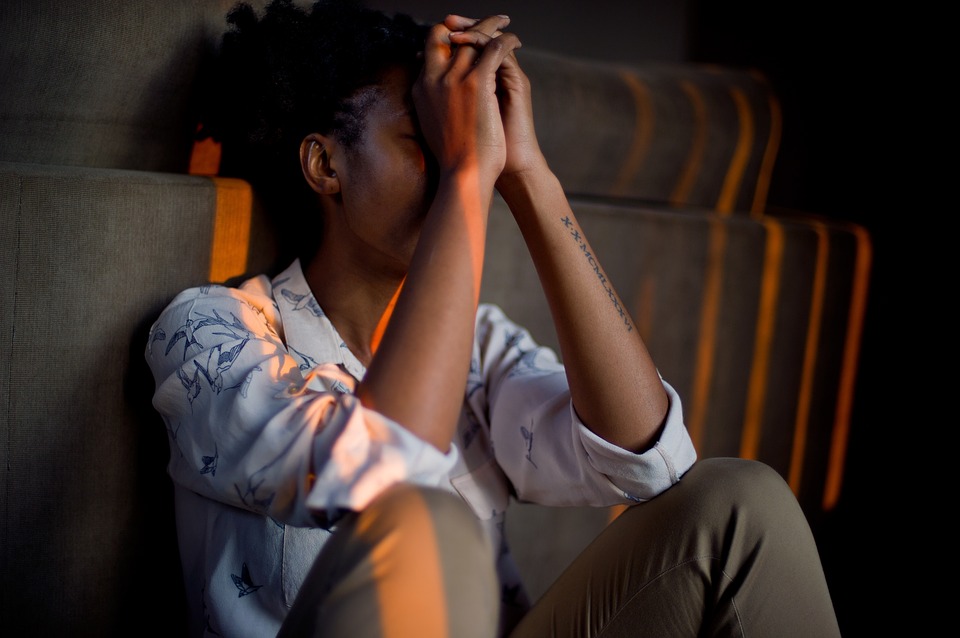You know when you go to your doctor and they ask for your family’s health history? Many Africans don’t have much to write, not because there are no health issues in the family, but because they are not aware of them. Maybe some health issues weren’t diagnosed.
The responses to mental health history are even more scarce. The questions go something like this…
- Do you have any family members with mental illness? Any mental issues in the family?
- What about issues with over consumption of alcohol?
- What about consumption of other substances?
Again, many Africans wouldn’t know what to write because they can’t identify that some of the issues observed in their families are considered mental issues and can sometimes be diagnosable disorders. In this post, I’ll provide general statements from African immigrants I interviewed that hint at mental and emotional issues. Note that these are reasons why people seek psychotherapy or counseling.
But before we do that, it is important to know that…
Not all stress is bad
Some stress is good for us, it keeps us motivated and helps us to figure out what we need to do and do it. This is called eustress. But there is a level of stress that can become overwhelming when it is prolonged. This is when we don’t have enough resources to meet the demands being placed on us. This is called distress. Usually when we say we are stressed we are talking about distress. However, we can all say that part of life is the experience of stress. There may be instances when we feel stressed about something, have a rough night where we can’t sleep, forget to do something we were meaning to do, etc. Each of these experiences individually is not enough to be diagnosed as clinically significant symptoms.
There is a difference between non-clinically significant symptoms and clinically significant symptoms.
Just as we experience stress, we also feel different emotions such as fear, sadness, anger, disgust, joy, surprise, and more. Again, this is part of being human. In fact, if we never felt any of these emotions, we should be concerned about something being wrong. The experience of all our emotions is not a bad thing. So, it is okay to have sad moments, to feel angry about something happening that you didn’t like, and to be afraid of something. Welcome to life, this happens to all of us.
Issues become concerning when a cluster (multiple) of symptoms begin to cause difficulties in functioning at one’s home, at work, at school, or in social settings. It may also be noticeable that these symptoms have been occurring for a prolonged period. This may be anywhere from 2 weeks or more depending on the issue.
Africans minimize their issues
We, Africans tend to minimize our issues. When I interviewed Africans living in the U.S., some of them described distressing times in their lives, then gave a counter statement such as “I don’t really have problems.” A Nigerian man told me plainly, “Honestly, one of the things is we don’t notice it as much.” The “it” he was referring to is mental distress. It is common for us Africans to keep going and not stop to assess how we are doing. After all, life in the U.S. is busy right? It’s not like back home when you could stroll to your neighbor’s house and chat in the afternoon.
African immigrant experiences of mental distress
I will let my participants words speak for themselves. The excerpts below are taken from interviews that were done with working adults, people who were educated, had jobs, or were in school. See more here! The aspects they mentioned may not all meet full criteria for a mental disorder, but they hint at emotional and mental struggles that could be diagnosed.
Identifying mental disorders in people with high severity of mental illness (which was not the case for the people here) can be more obvious, but it is more challenging noticing when we ourselves or our loved ones are highly distressed.
The paragraphs below are what people said about their experiences in the U.S. As you read, notice the words that are highlighted. They point to time frames, the effects of the problems, symptoms, and other signs that hint at mental and emotional distress. These are problems that could warrant seeking professional help.
Going back to my sister’s passing, it’s really affected me, I feel like it’s almost changed my life. It’s really affected me because it was sudden, it was not expected… you knew this person was a part of your life, I had all these visions about her coming here to join us and all the things we were gonna do together and all that fun stuff and then just one day she wasn’t there so it was really hard, and then like I said she was the one person that I felt really comfortable talking about everything from my kids to my marriage, to school life, everything, life here as an immigrant in America, we would talk about it, we would laugh. I don’t have that in anybody else, so her absence has really affected me. I’ve gone through lots of emotions, I’ve been depressed, the grieving process has taken much longer because I guess because it was so sudden, and the shock, for a very long time I was still in shock.
- Grief and loss, loneliness/isolation, depression, and possible trauma from the shock
I was overburdened and around that time I had lost my job. I think that was the worst moment of my life of ever being here. For about 3-4 months, I wasn’t working, I was schooling, I had bills to pay so psychologically, I wasn’t stable, I wasn’t. I didn’t really realize it till later I checked my grades and I found that this was happening, and it went on for quite a while, I think at least 2 quarters, you know. I checked my grades and was like this really affected me because when you have all these things going on in your mind, you’re looking for a job, I remember one class, there was this topic, one chapter, I went for a job interview, I didn’t even get the job. I went for the interview in the morning and then came to class around 9. I went before 9, I was late. When I came, they had started the chapter and I never understood it till we completed it.
- Overwhelming stress affecting his ability to function academically, hints at anxiety about how to fulfill all his demands
I was sexually harassed and that was really hard because I was about 17 at that time and I was on my own here. My sister wasn’t here yet, I was just visiting some friends and I asked them to give me a ride back and the mom said, “let me put the kids to sleep first” and that took a while and then the dad said, “oh, here is your room if you want to sleep over and so by the time, while I was waiting for the mom, I fell asleep and the dad came in the room and he was just all over me and then after that he went and I heard them having sex. He went with his wife to have sex and that was really disturbing.
- Possible trauma from sexual abuse and the situation, loss of a trusting relationship while she was alone in the U.S.
I mean losing someone is you know I’ve lost family members but it wasn’t really close to home but losing a spouse is completely different like no one else’s situation is the same so it’s pretty difficult especially how happy you are in your relationship you know so it’s really that feeling of being empty, lonely, not having the person there all the time you know it’s a hard transition, but it takes time and a lot of thinking.
- Grief and loss of a spouse, loneliness, possible isolation, major life adjustment, can lead to depression
It was getting divorced after 15 years and the last 18 months, it was quitting my job of 6 years that I had really trained for and studied for and like that was my career track and they just burnt me out and I was like, “it’s gonna kill me” and so I just walked away from my job and walked away from everything and that kinda started spiraling, I was kinda like feeling down and depressed and regretting and then eventually in April of this year, I got divorced, so it’s been two big things.
- Two big losses in two important areas of life that can affect sense of identity, worth, and purpose, hints at depression and anxiety
I mean, it could be anxiety, just social isolation, it can lead to depression, loneliness, like especially when you don’t have family here like for somebody like me, so I grew up in, not a big family, but in a culture where family is really tight nit and we do everything together and you know, it’s not just about husband, wife, and kids, it’s about aunt, and cousins, and uncles and growing up as a child, that’s what we were used to and so here now I don’t have that.
- The societal change alone from a collectivistic to an individualistic culture can cause loneliness, social isolation, depression, and anxiety
As you can see from the descriptions above, mental distress doesn’t have to be a mystery. Can you see yourself or someone you know in any of the excerpts above? Or maybe your story wasn’t represented, but you know it’s time to seek help. Read my posts on what psychotherapy is all about, ways to find affordable help and look through my resource page for assistance.




One Response